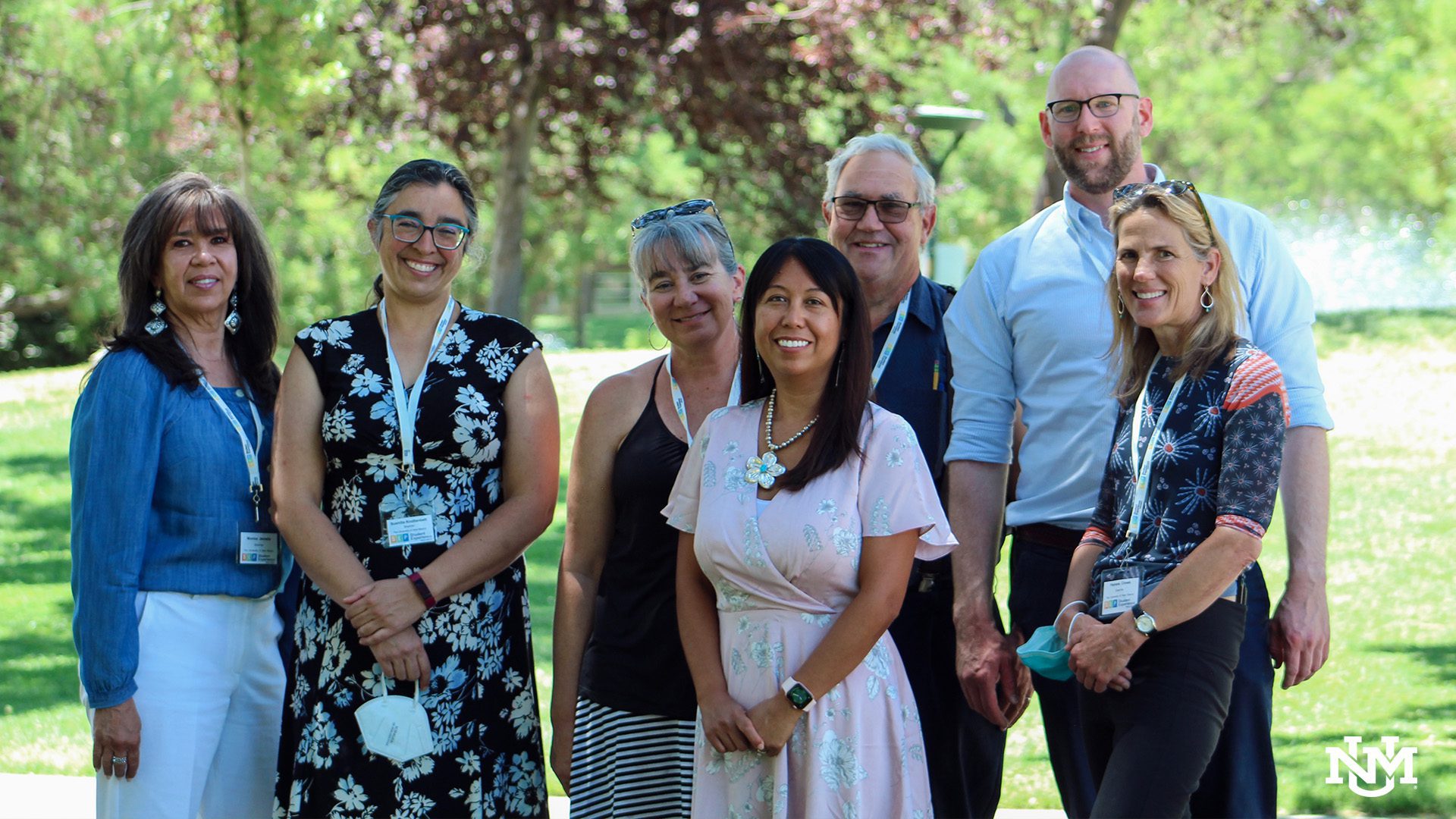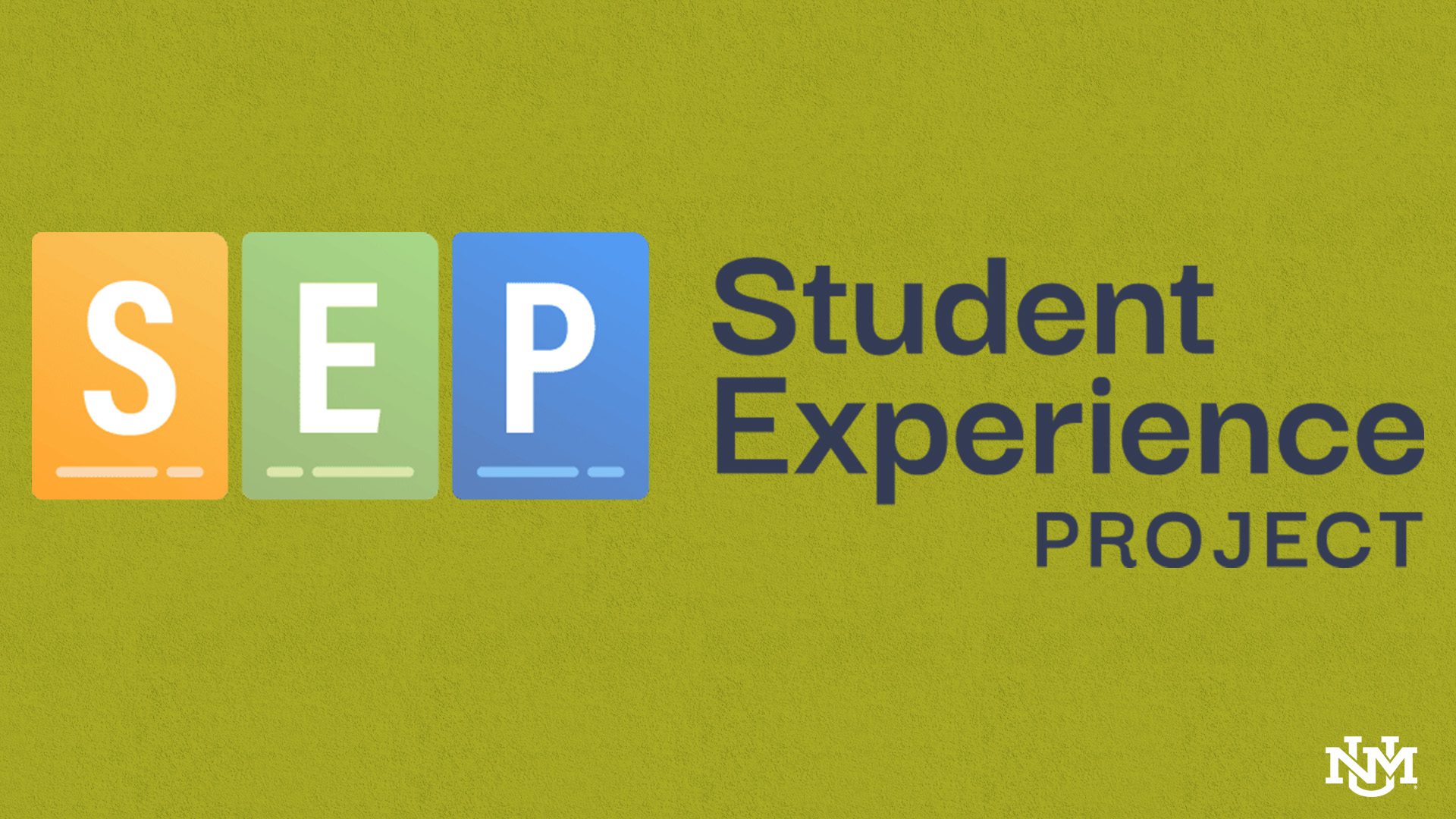
The university experience can be challenging to incoming students, particularly those in historically marginalized groups. The University of New Mexico is one of six schools that has been working for the past three years with the Coalition of Urban Serving Universities on an equity-focused effort to boost student achievement by fostering a sense of inclusion and belonging. The Student Experience Project (SEP) encourages faculty to adopt research-based practices that make first-generation and underserved students feel welcome and supported while improving academic performance. Effective measures include improving communication, revising syllabi and course policies, and highlighting the work of diverse scholars through inclusion of images, stories and cases in course materials. These measures are described in the SEP Resource Hub for instructors, which UNM helped develop.
After three years of testing SEP practices, the results are in. A new report from The Student Experience Project explains that when faculty used SEP practices in a study involving 10,000 students at all six universities, the percentage of students who failed or withdrew from courses went down, as compared to performance in the same courses taught by the same instructors in the past. The percentage of students who received an A or a B went up. Notably, as the report explains, “the percentage of Black, Latina, and Native American women experiencing financial stress who reported an overall positive experience of their learning environment increased by approximately 25% in fall 2020 and spring 2021.”
At UNM, in Fall 2021, fail and withdraw rates decreased by 2% and A and B rates increased by 10% in classes incorporating SEP tools. For Fall 2021 STEM classes in which faculty used SEP tools, 92% of students were retained in the STEM pathway in the following semester. Overall, from Spring 2020 through Fall 2021, students gave faculty in UNM SEP classes high marks for trust and fairness (98%), while their sense of identity safety, social connection and belonging improved notably over the course of each semester.
SEP is a national partnership of faculty, researchers, and organizations working together to bring evidence-based practices to university classrooms. The six university partners are UNM, University of North Carolina at Charlotte, University of Toledo, University of Colorado Denver, Colorado State University, and Portland State University. Research partners are College Transition Collaborative at Stanford, PERTS, Association of Public and Land-grant Universities (APLU), Raikes Foundation, and Shift.

“The project originated with research demonstrating that students who feel that they belong in college and receive needed support and resources are more successful in college,” according to Dr. Sushilla Knottenbelt, director of the BA/MD program and science lead on the project at UNM. “SEP is committed to transforming the college student experience and creating equitable learning environments through innovative, evidence-based practices that increase the likelihood that students will attain a degree.”
The core team at UNM is led by Associate Provost Pamela Cheek and consists of staff and faculty: accreditation program manager Joe Suilmann; programmer analyst Monica Jenrette; institutional researcher Charla Orozco; Associate Professor of Epidemiology Dr.Andy Rowland; principal lecturer in the Department of Biology Dr. Kelly Howe; professor of Mathematics Dr.Monika Nitsche; and Knottenbelt.
Instructors apply to become SEP fellows. The fellowship includes several training sessions using materials developed by the national project and adapted to the UNM context. In addition, fellows meet once a month to learn about and implement practices to support growth mindset and social belonging in their classrooms. So far 135 faculty from 10 UNM colleges, all four branches, and 43 departments, have used SEP with about 2,500 students. Faculty fellows report that connection with each other across disciplines in the UNM SEP community of practice has given them a sense of belonging as well.
One of the tactics used is by SEP instructors is “wise feedback.” Through wise feedback, educators assure students that class standards are high and that they believe the student can meet those standards. In contrast to general statements like “good job” or “study harder next time,” wise feedback identifies specific actionable steps with appropriate scope that students can take, as well as available resources they can access, to support improvement. It also indicates that the educator is invested in the student’s capacity to achieve and is not lowering expectations.
Syllabi often include inherited formal language that feels threatening to students and inadvertently suggests that the instructor does not believe that they can do well, Cheek noted. For example, “a fairly common syllabus message is ‘Students who are struggling in the course should seek help from the peer tutoring center’,” Cheek said. Use of tutoring can be normalized and incentivized by eliminating stigma through rewriting: ‘Students are especially successful in this class when they take advantage of free university peer tutoring and ask questions during my check-in times or after class.’
Students who are new to college may not know the meaning of certain standard phrases like “office hours” or “class participation.” Alternative phrases and explanations can ease access for students. Equally, regularly including images and information about diverse people who have played a role in research, arts, or innovation can boost sense of belonging for members of groups that have been historically under-represented in research and higher education.
Students in SEP classes encounter a syllabus and a course environment designed to be welcoming and inclusive and to normalize challenges and provide resources for students in meeting those challenges, academic and otherwise. Students are surveyed regularly on their experience and know that their professors are committed to their success.
Faculty have access to a validated survey tool called Ascend, which helps them measure student experience and see the results disaggregated by race and ethnicity, gender, and financial stress, and monitor the effectiveness of the SEP interventions they employ in their classes.
“These techniques improve student experience for all students, but a major goal is to close the gap in student experience for those from historically marginalized groups. The project was actually originally designed for use in STEM classes, but has been implemented widely at UNM across disciplines, and is now used by faculty in most colleges and schools,” Knottenbelt said.
